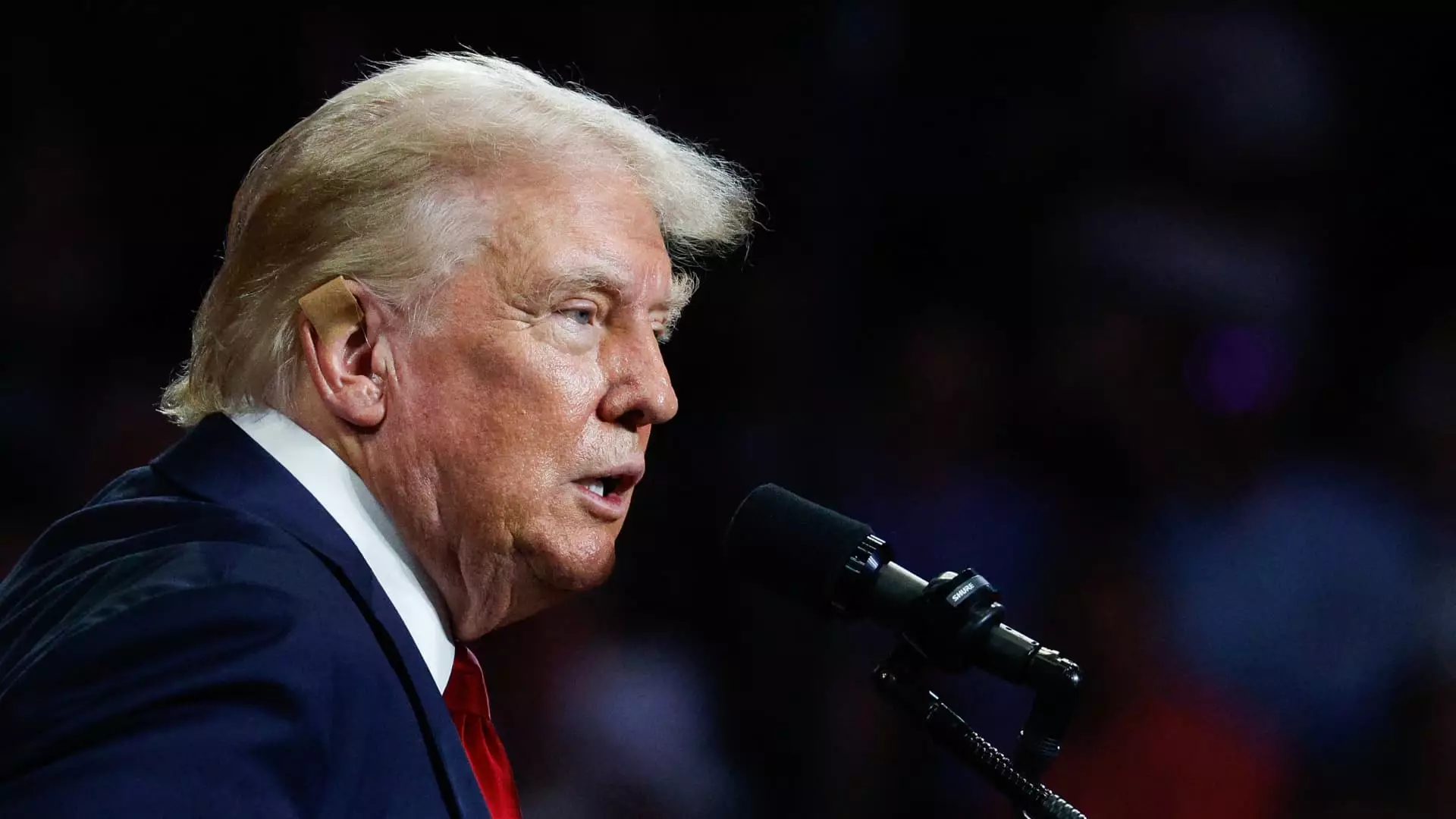Former President Donald Trump recently made headlines at the Bitcoin Conference in Nashville by pledging to maintain the current level of bitcoin holdings that the U.S. government has acquired, rather than establishing an official U.S. bitcoin strategic reserve currency. This decision marks a departure from the traditional approach of selling off seized assets from financial criminals, which can often lead to drops in crypto prices. Trump’s strategy of holding onto bitcoin through both bullish and bearish market conditions is in line with the practices encouraged by many within the crypto community.
Trump’s promise falls short of the more sweeping pitch made by third-party presidential candidate Robert F. Kennedy Jr., who proposed the establishment of a 4 million bitcoin strategic reserve to match the country’s gold reserves. Kennedy’s plan included signing an executive order to purchase 550 bitcoin a day, a move that would significantly impact the regulation and valuation of the cryptocurrency. While Trump’s proposal was met with less enthusiasm than Kennedy’s, it highlights the complexities involved in establishing a bitcoin strategic reserve on par with the gold standard.
Despite Trump’s promise, an executive order alone may not be sufficient to create a U.S. bitcoin reserve. The president would likely require new legislation and congressional approval to implement such a plan. Senator Cynthia Lummis of Wyoming has already announced her intention to introduce legislation supporting a strategic bitcoin reserve, which aims to assemble 1 million bitcoin over five years to reduce the country’s debt. This legislative process would most likely need a Republican majority in the White House, Senate, and House to pass successfully.
Establishing a national bitcoin reserve would provide the digital currency with increased legitimacy, especially in light of Wall Street’s growing adoption of the asset. The listing of spot bitcoin exchange-traded funds on U.S. markets earlier this year was seen as a significant step towards cementing bitcoin as a viable asset class. A bitcoin reserve would further elevate the status of the digital currency and potentially drive up its price in the short term.
Trump’s promise to maintain U.S. bitcoin holdings comes as a surprise to many, considering his past criticisms of the cryptocurrency. As recently as 2021, Trump referred to bitcoin as a “scam”, highlighting his evolving perspective on the digital asset. While his reluctance to establish a bitcoin strategic reserve in line with Kennedy’s proposal may disappoint some crypto enthusiasts, it underscores the challenges associated with implementing such a significant policy change.
Market Reaction to Trump’s Promise
Despite the attention garnered by Trump’s announcement, the markets have remained relatively unfazed by his pledge to maintain U.S. bitcoin holdings. Bitcoin’s price has held steady around $68,000, indicating that investors are taking a wait-and-see approach when it comes to the potential impact of a national bitcoin reserve. The long-term implications of Trump’s promise, as well as the legislative hurdles that lie ahead, will likely shape the future of bitcoin in the U.S. and beyond.


Leave a Reply
You must be logged in to post a comment.